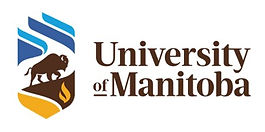
Anti-Racism Partners





Anti-Racism in British Columbia
British Columbia Cultural Safety
Build Organizational Anti-Racist Competency
These services can help to interrupt Indigenous specific racism, improve provider competency, and lead to safer access for Indigenous people.
Address Competency Mandates and Goals for:
-
Politicians
-
Physicians
-
Union leaders
-
Corporate leaders
-
Healthcare providers
-
Leadership teams at health authorities
-
School district, University, College, Certification Board Leadership
-
Anyone with an interest in developing Indigenous anti-racism and cultural safety competency

Settler Education
Insights on
Confronting Indigenous Anti-Racism
“One does not become enlightened by imagining figures of light, but by making the darkness visible”
–Carl Jung
Insight is gained by looking fearlessly at unexamined racial realities.
Being a White Settler, I will never experience racism. It is only by looking fearlessly at my socialization and my relationships that I can begin to understand the impact of race on me, and on Indigenous peoples.
I have specialized in Indigenous anti-racism studies for many years and now realize that I have a role and responsibility to share what I know. I am eternally grateful for relationships with Indigenous leaders, colleagues, friends and scholars who continue to teach me - in collaboration and co-facilitation over many years. I humbly acknowledge that my learning has come at their expense and that is why I offer Settler to Settler services.
In my work, first and foremost, I am accountable to Indigenous people and consult with mentors invested in Indigenous anti-racism and Cultural Safety work to navigate my own White Settler privilege and inherent blind spots.
Dr. Laurie Harding
Indigenous Anti-Racism Educator, Facilitator, and Coach

What I do and How I got here
My skill area and passion is in one/one coaching, group facilitation, and educating Settler peoples about the impacts of Canada’s historical and contemporary colonial realities including; systemic racism, socialized bias and normalized stereotypes. My knowledge, awareness, skills and beliefs have been formed in experience and in relationships working for and collaborating with Indigenous scholars and leaders in Indigenous anti-racism and Cultural Safety education and training.
I offer support for non-Indigenous service providers to assess workplace/practice to encourage leading by example, accountability, responsibility and providing safer services for Indigenous peoples. I also offer supports for Indigenous people and teams to debrief and strategize racism interventions.
An important note about race and my services:
My work is created with a focus on supports for non-Indigenous people and White people's accountability in particular (given the context of predominance in leadership and a socialized deficit in racism education). I also recognize that Indigenous, Black and People of Colour may want support concerning ongoing systemic racism. I can also refer to Indigenous People and Settlers of Colour doing Indigenous anti-racism work. Click here to check out my services page.
Samples of Laurie's Work with Indigenous Leaders
First Nations Health Authority (FNHA)
Webinar. Responding to Anti-Indigenous Racism in Health Care.
Stemming from a history of colonialism and ongoing racism in Canada, Indigenous people continue to experience many harms when trying to access health care. This presentation will take a look at where and how these harms tend to occur in the system and what we can start doing as individuals and organizations.
Doctor of Education Thesis published by Simon Fraser University (SFU)
What’s the Harm? Examining the Stereotyping of Indigenous People in Health Care Systems
Description: My research study examined how stereotyping of Indigenous Peoples impacts health service provider attitudes, actions and services to Indigenous Peoples.
CBC White Coat Black Art podcast
White Coat, Black Art. 'It's the hardest conversation we can have': Confronting racism in health care
A lot of people assume that when they call an ambulance or head to the ER, they're going to a safe place where they'll be treated with respect.
Its not something all Canadians take for granted.
How Indigenous Specific Racism is Coached into Health Systems
Lavallee, B., Harding L., (2022).
In White Benevolence: Racism and Colonial Violence in the Helping Professions.
Lavallee and Harding provide an in-depth examination of the pervasive and intervention- resistant nature of normalized Indigenous specific racism by deconstructing health service providers accounts of stereotype harm.
With this image and link: https://fernwoodpublishing.ca/book/white-benevolence
